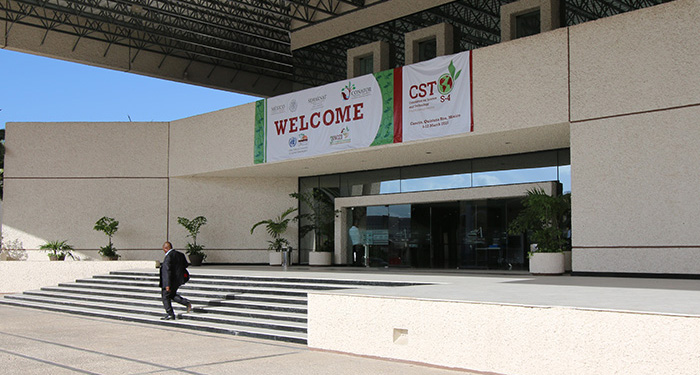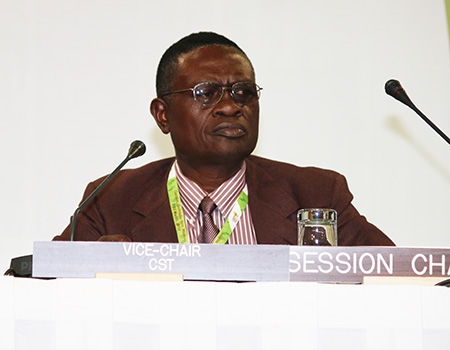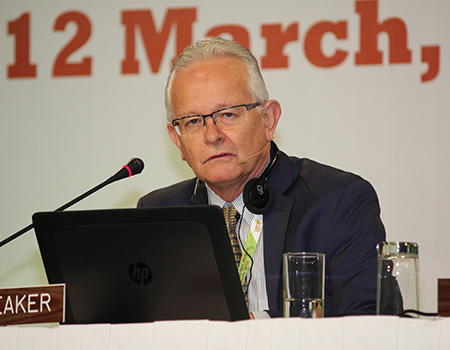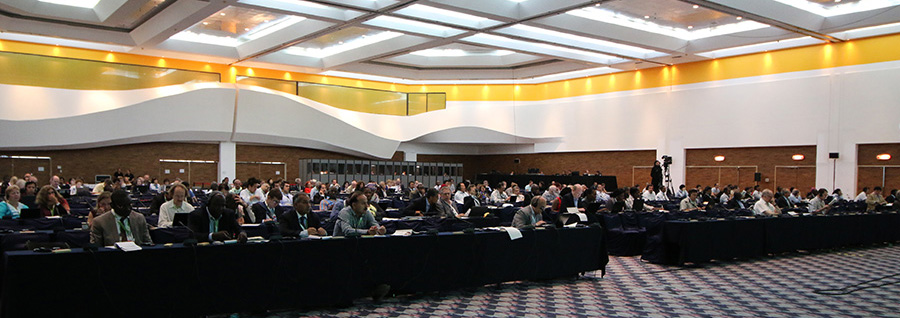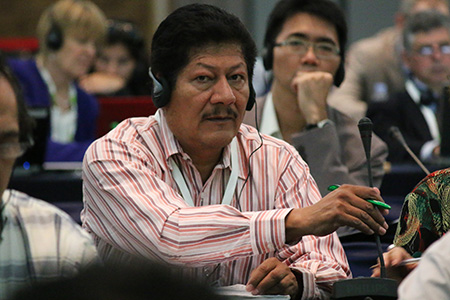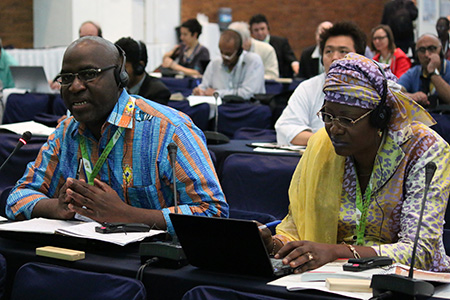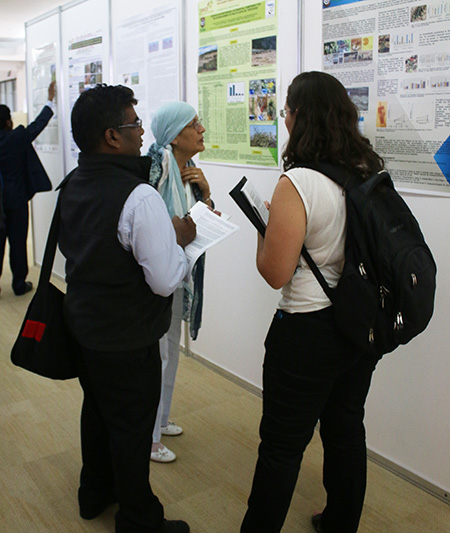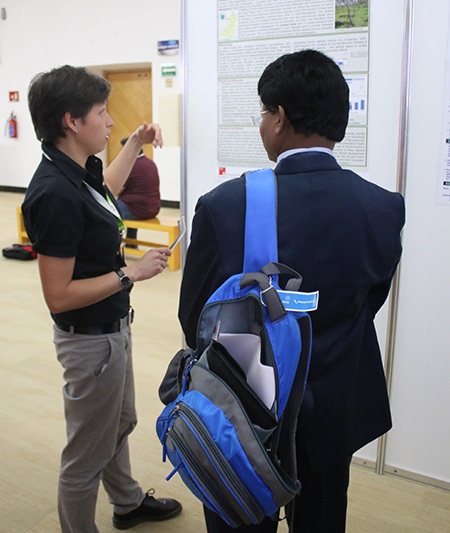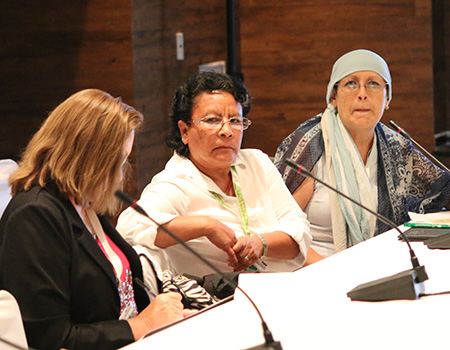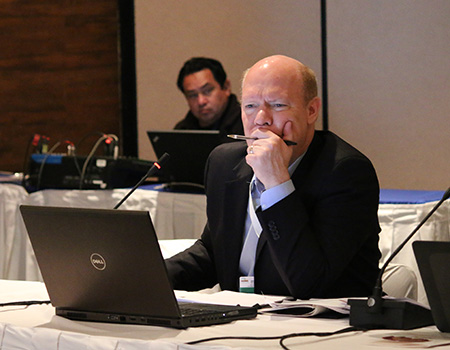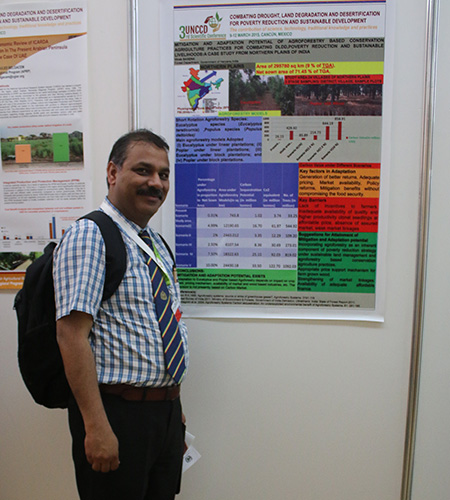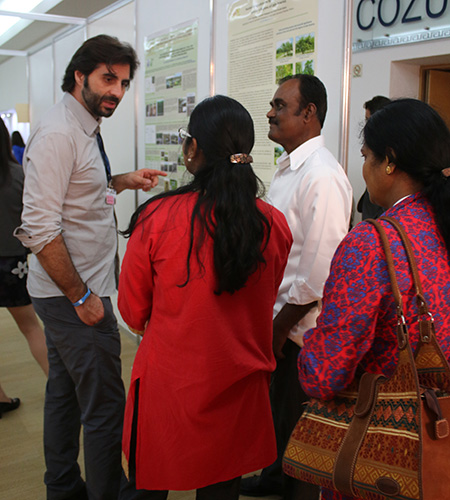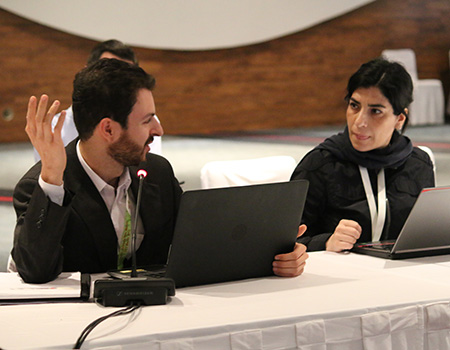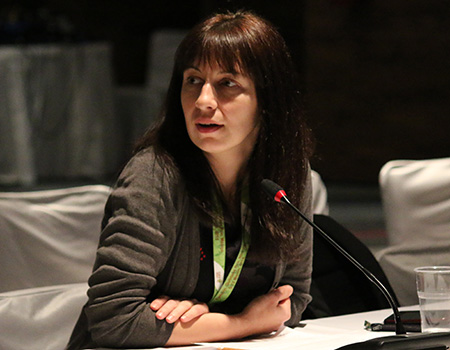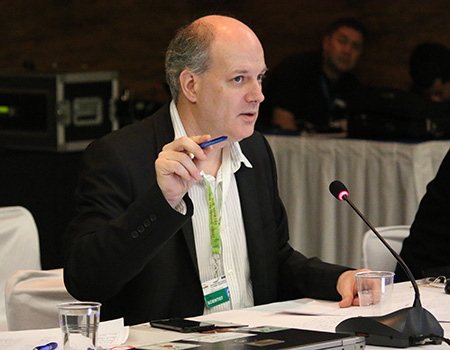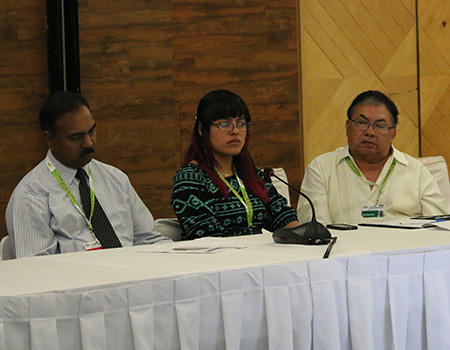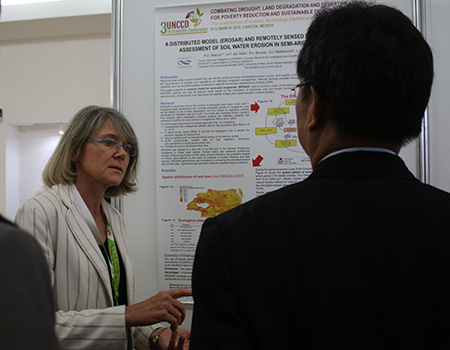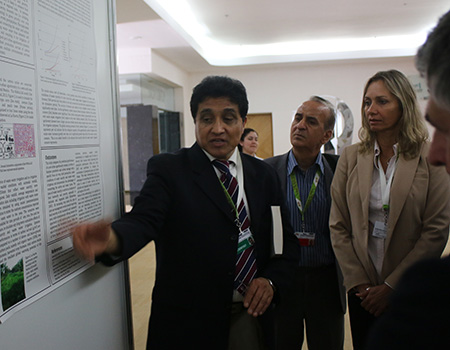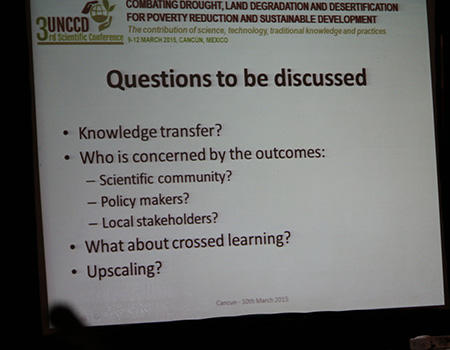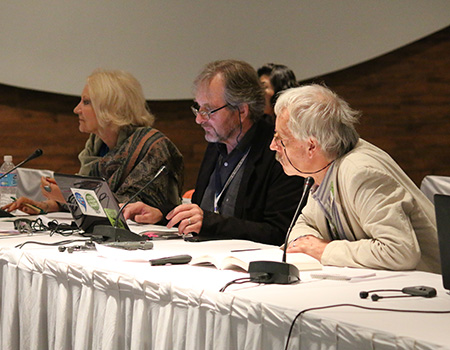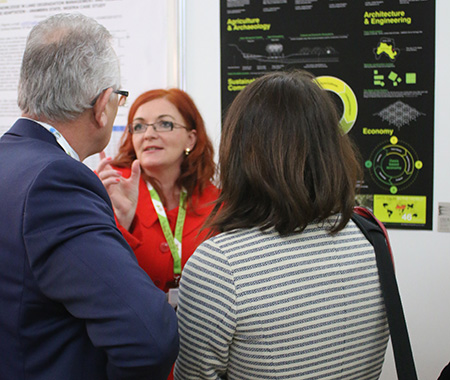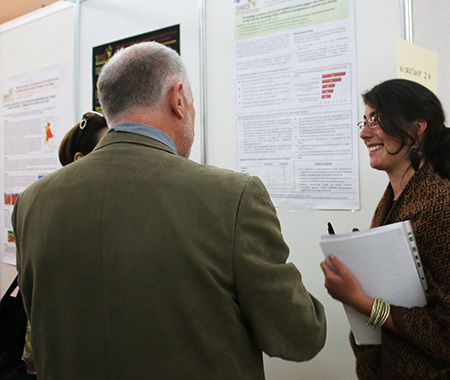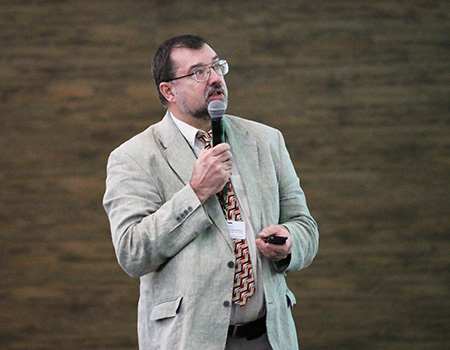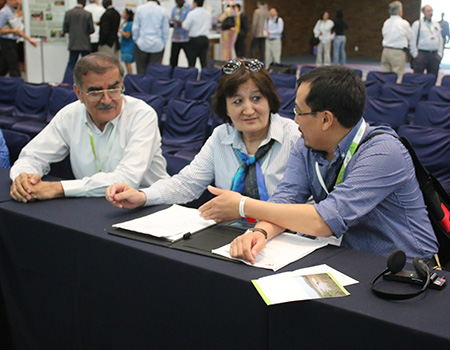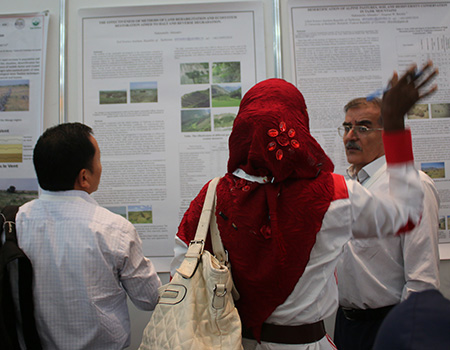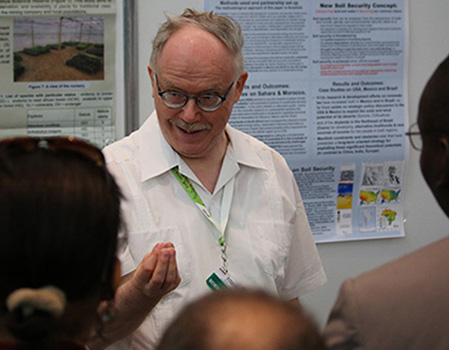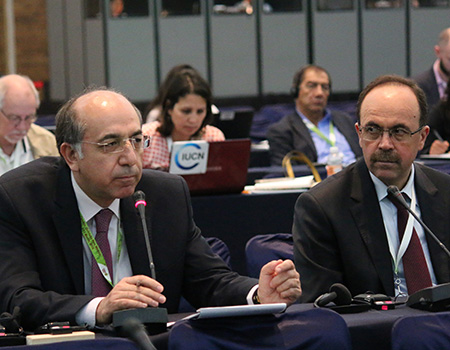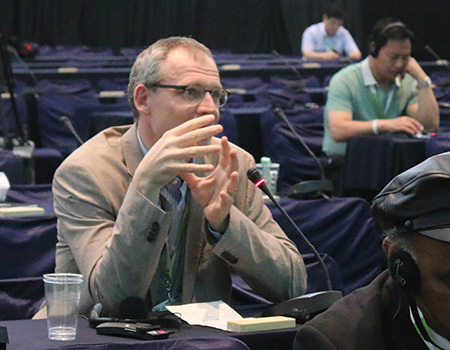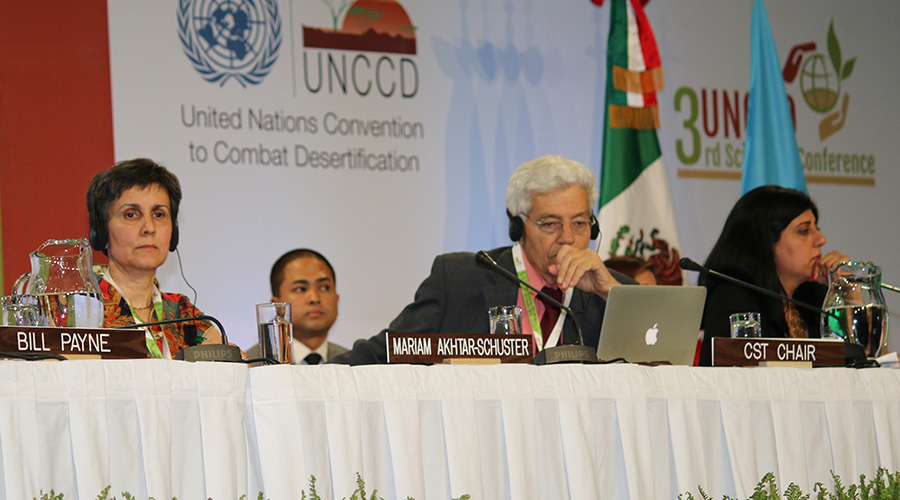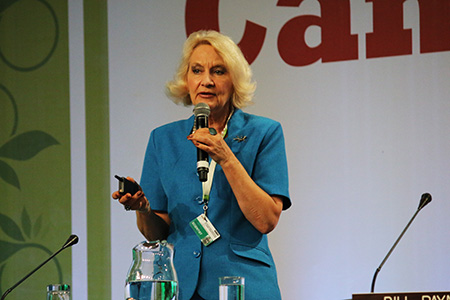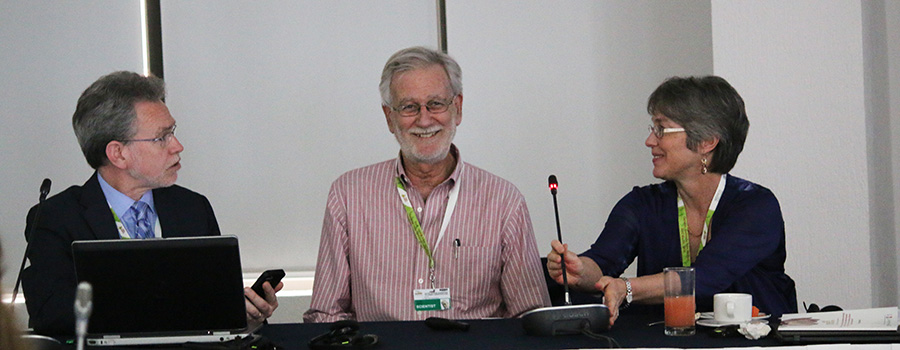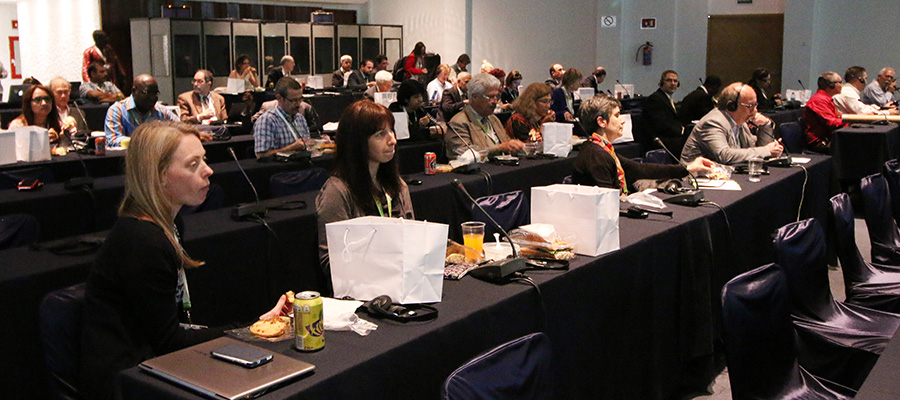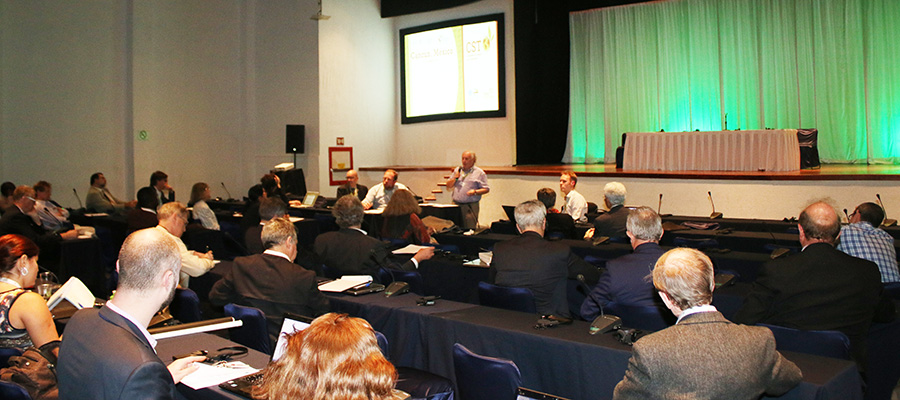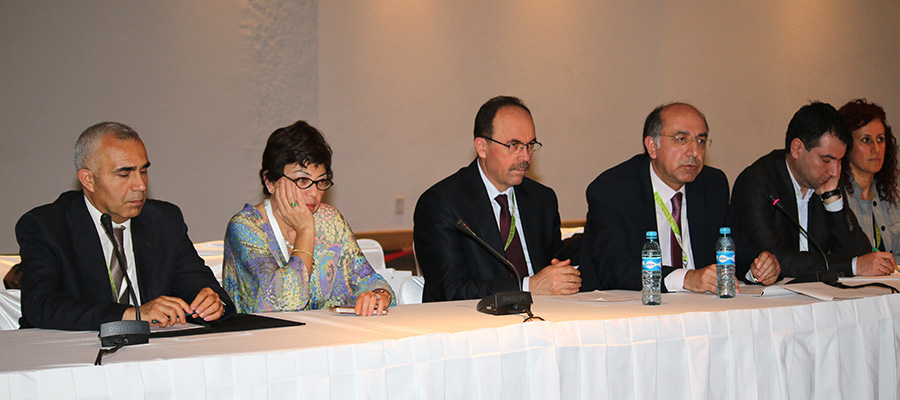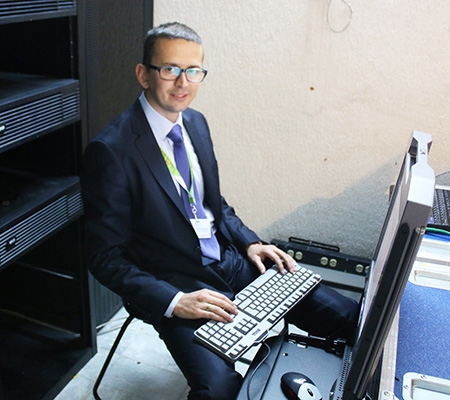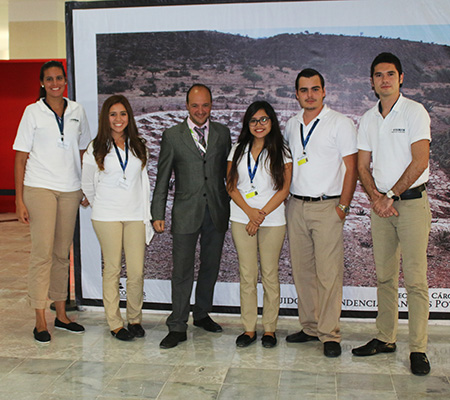|
On Tuesday morning, 10 March 2015, Matthias Magunda, CST Bureau member and National Agricultural Research Institution, Uganda, opened the second day of the UNCCD 3rd Scientific Conference and chaired a session on responses to desertification and land degradation through land-based approaches to adaptation. Richard Thomas, Dryland Systems CGIAR Research Program Director, and the International Center for Agricultural Research in the Dry Areas (ICARDA), Jordan, delivered a keynote address on ways to enhance responses through collaboration. He noted that the main objective should be concentrated on reducing poverty and increasing food security through sustainable land management practices. He urged participants to adopt systems approaches that include comprehensive understanding, diagnosis and decision making in order to transition to research-for-development communities. Thomas emphasized that breakthroughs in science will not come from traditional scientists; they will come through interdisciplinary science.
Also during the morning, five parallel workshops considered poster presentations that scientists had prepared on the workshop topics, followed by a discussion among workshop participants on recommendations for further action. The workshops considered the following themes: Crops, livestock, genetics and seed systems; Agro-ecosystems; Soil and water issues; Knowledge and knowledge transfer; and Desertification, land degradation and restoration.
Mariam Akhtar-Schuster, Member, Scientific Advisory Committee (SAC), Member, UNCCD Science-Policy Interface (SPI), and Coordinator, Advisory Board of DesertNet International, chaired an afternoon plenary on the role of local knowledge in addressing land degradation, desertification and drought, during which Úrsula Oswald Spring, Professor, Regional Multidisciplinary Research Centre, National Autonomous University of Mexico (UNAM), gave a keynote address. Underscoring the interconnections between climate change, biodiversity loss and water stress, Oswald Spring presented on how indigenous and peasant societies in Latin America have combatted land degradation and called for integrated management of land, soil, water, food, biodiversity and human settlements that uses biocultural knowledge and builds on preventive conflict resolution. She concluded by highlighting the need for HUman, Gender and Environmental security, or ‘HUGE security’ that requires a systemic approach dealing with the nexus of water, energy, biodiversity and food.
At the close of the day, rapporteurs for the workshops on Monday and Tuesday reported on the discussions and recommendations from each workshop. Also on Tuesday, seven side events convened, allowing participants to consider topics such as “Making a network of networks work to achieve land degradation neutrality: improving UNCCD stakeholders’ use of scientific knowledge,” “The use of satellite data to measure and monitor land degradation over time at multiple scales,” “The Global Land Outlook” and “COP 12 in Turkey and Turkish Experiences in Combating Desertification.”
|
|

